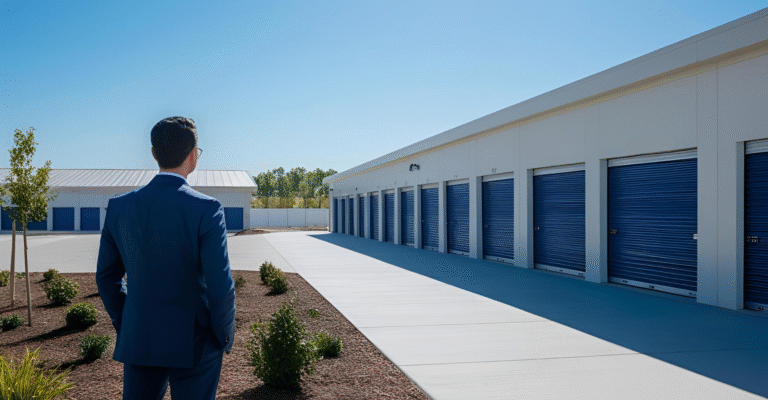Why Operational Execution Matters in Self-Storage
When looking at a self-storage investment, many people focus on the big numbers. They look at purchase price, expected returns, market data, and cap rates. These are all important, but they only show part of the picture. What often gets overlooked is just as important: how the facility will be run. Without this operational insight, investors risk missing the very factors that will determine the real outcome of the investment.
Self-storage is a simple business. But the difference between a great investment and a disappointing one often comes down to day-to-day operations. A facility can be in a great location and still perform poorly if it’s not managed well. This is why two properties in similar markets can have drastically different results over the same time period.
Running a storage facility is more than just filling up units. It includes smart pricing, helpful customer service, good online tools, and strong marketing. Keeping costs down also matters. That means using staff and technology wisely, keeping up with repairs, and making good choices about vendors and expenses. Every one of these elements directly impacts the bottom line and the investor’s return.
That’s why operations should be front and center in any business plan. Sponsors should explain who is running the facility, what experience they bring, and what systems will support them. If automation or remote management is part of the plan, investors deserve to know whether the team has experience with these approaches or if an expert will be guiding the process. Clear, detailed operational plans are a signal of both preparedness and professionalism.
These details matter, especially in value-add deals or those with a lease-up period. Projecting better performance is easy. Actually improving operations takes real skill. Investors should look closely at how the sponsor plans to make the numbers real. The more transparent the plan, the easier it is for investors to assess whether projected returns are realistic.
Strong operations can also serve as a form of risk management. Even in challenging markets, well-run facilities are better positioned to retain customers, maintain occupancy, and keep revenue steady. For investors, this means fewer unpleasant surprises and a greater likelihood of meeting or exceeding projected returns. Operators who take a proactive approach to problem-solving can often turn potential setbacks into opportunities for growth.
Operational discipline is especially critical during transitional periods, such as ownership changes or major renovations. These moments can be disruptive to tenants, and without a thoughtful plan, occupancy can drop. Sponsors who can show they have managed through similar transitions successfully are offering more than a promise. They are demonstrating proven capability. A clear history of adapting and maintaining stability during transitions is one of the strongest indicators of long-term success.
Technology now plays an increasingly important role in operational success. From automated gate systems to online rentals and payments, the right tools can enhance efficiency and improve the customer experience. But technology alone is not a magic fix. It still requires a capable team to implement it effectively, train staff, and ensure the systems are delivering real value to both the operator and the tenant. When done well, tech integration can both reduce costs and enhance customer satisfaction.
Local market knowledge is another underappreciated aspect of operational execution. Understanding the community’s needs, pricing sensitivities, and competitive landscape allows a facility to adapt quickly and market more effectively. A sponsor who can speak in detail about local demand drivers and competitor behavior is showing they have done the homework and that they plan to make decisions based on more than just spreadsheets. This kind of insight can be the difference between simply staying full and achieving premium occupancy at higher rates.
Good operations help a facility stand out. Even though storage is often seen as low-maintenance and stable, it is still competitive. The best-performing properties stay clean, safe, and easy to use. They meet customers’ needs both online and in person. That kind of consistency does not happen by accident. It takes discipline and attention to detail, supported by systems that allow the same high standards to be maintained year after year.
In the end, investors want to work with teams who can deliver, not just in theory, but in real life. That is why operational planning is a key part of due diligence and should be reviewed carefully. Taking the time to evaluate operational execution upfront can prevent costly disappointments down the road.
At StorageTrader, we encourage sponsors to clearly explain how they plan to run their facilities. We also urge investors to pay close attention to these plans before committing. A good location and strong market are essential. But in the end, it comes down to who is running the deal and how they will get the job done. When execution matches vision, that is when self-storage investments truly deliver.








